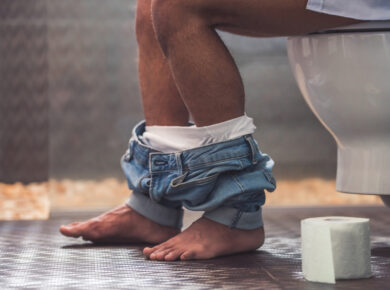
What is a Vaccine?
According to the CDC, a vaccine is a product that stimulates a person’s immune system to produce immunity to a specific disease, protecting the person from that disease. It is a suspension of weakened, killed, or fragmented microorganisms or toxins or of antibodies or lymphocytes that is administered primarily to prevent disease.
In simple terms, a vaccine is a weaker version of a virus, bacteria or toxin injected into the system to stimulate the immune system.
So the question is, “how does injecting me with a virus protect me from the same virus?”
Here is how it works.
Immunity is the protection from an infectious disease. The immune system is a 24-hour machine equipped to manage attacks from invaders to prevent or inhibit infections. The immune cells can differentiate between the body’s normal cells and foreign cells (virus, bacteria, etc.) with a marker called antigen. Each type of bacteria and viruses have different antigens.
At the entry of a foreign cells, a certain immune cell called lymphocytes become active. The lymphocytes are found in white blood cells. Their job is to attack and destroy the antigen (marker) and the cell of this foreigner. They do this either by directly attacking the cell or unleashing an antibody to do the job. An antibody is a blood protein produced in response to the presence of an antigen.
The antibody for a specific bacteria can only destroy that bacteria. So, the entry of a bacteria with antigen D stimulates the production of an antibody D. Antibody D can only destroy antigen D, it cannot destroy antigen A. So like for like, antibody against antigen.
In essence, the body needs to produce an antibody for every antigen that enters the system.
So what role do vaccines play here?
The idea behind vaccines is; when you introduce a weaker or dead version of a virus/bacteria/antigen, the body creates antibodies for it. Because the antigens introduced into the body are weak, they cannot harm you. They only help the blood to create antibodies for the disease and prepare the body against the future entrance of that disease. Antibodies cannot be created without the presence of antigens.
Vaccines are weaker or dead antigens used to stimulate the production of antibodies.
There are several ways an antigen can be used:
- Attenuated live viruses; Weakened forms of a live virus. They do not cause illness but will create an immune response. Examples include the MMR (measles, mumps, rubella) and chickenpox vaccines.
- Inactivated viruses; A version of the virus that has been killed. Although the virus is dead, antibodies will still be produced. Examples include the polio vaccine.
- Recombinant; Viruses are made in a lab through genetic engineering. This way, a specific gene can be reproduced. The human papillomavirus (HPV) has several strains. The HPV vaccine can be tailored to protect against strains that cause cervical cancer.
- Conjugate; Bacteria and virus antigens may have a polysaccharide coating, a sugar-like substance to protect it. Conjugate vaccines work around the disguise to recognize the bacteria. The Hib vaccine is an example of a conjugate.
- Subunit; Uses only the antigens that stimulate an immune response. The flu shot is a subunit vaccine.
- Toxoid; Inactivated versions of bacterial toxins are used to make the immunity. Examples include tetanus and diphtheria vaccines.
There are many types of the COVID-19 vaccine, all produced to help the body produce antibodies to fight future contact with the virus. Sometimes the process of producing antibodies can cause symptoms, such as fever. These symptoms are normal and are a sign that the body is building protection against the virus that causes COVID-19
Can I contract COVID-19 after vaccination?
It typically takes a few weeks for the body to build immunity (protection against the virus that causes COVID-19) after vaccination. That means it’s possible a person could be infected with the virus that causes COVID-19 just before or just after vaccination and still gets sick. This is because the vaccine has not had enough time to provide protection.
There have been reported cases of people who tested positive to COVID-19 long after vaccination. However, because the body has been prepared with antibodies, they do not experience the severe symptoms that occur with the disease. Also, the tendency to transmit the disease to other people is reduced to almost zero.
So should you get vaccinated? YES, you should. Being vaccinated protects you and your loved ones from various diseases.
For more information and guidance, speak with a doctor for FREE on the Doktorconnect App.
Doktorconnect provides you immediate access to a doctor anytime, from anywhere.

